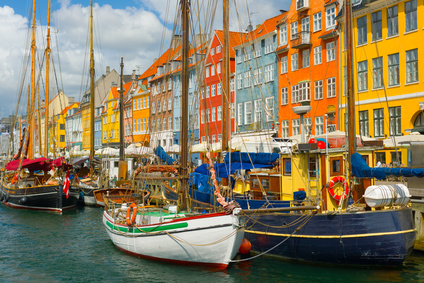Denmark: Not As Socialist (Nor As Successful) As You Think

Bernie Sanders would like the United States to model itself after Denmark. Not the real Denmark, mind you, but a romanticized version of what its government does, and of how well it does it.
As Danish Prime Minister Lars Løkke Rasmussen himself put it, in reaction to this fictionalized vision of his country: "I would like to make one thing clear. Denmark is far from a socialist planned economy. Denmark is a market economy."
Admittedly, it is a market economy with high taxes and an extensive welfare state. But it wasn't always so–and it might not stay that way for very much longer.
First, a bit of history. Denmark did not become wealthy through redistribution alone, obviously. In fact, as Otto Brøns-Petersen of Denmark's Center for Political Studies recently explained, it got rich under a taxation and spending regime not that different from that of the big bad United States. Danish tax levels only took off starting in the mid-1960s–and the country's process of catching up to US wealth levels soon after came to a halt. In other words, Denmark became rich first, and only then ratcheted up its tax rates.
Next, some perspective. Denmark still qualifies as a market economy today despite its high taxes and large welfare state for a number of important reasons. As Brøns-Petersen points out, property rights are well-protected, the currency is sound, international trade is relatively free, and the regulation of business, labour, and credit is light. There are few restrictions on hiring and firing, there's no legislated minimum wage, and taxpayers are not called upon to bail out their banks.
For these kinds of reasons, Denmark scores quite well when it comes to overall economic freedom: 22nd on the Fraser Institute's Economic Freedom of the World report, and 11th on the Heritage Foundation's Index of Economic Freedom. It ranks even higher on the World Bank's "Doing Business" list, coming in at number 3.
Finally, Denmark's welfare state is more of a rickety derelict than a solid structure. Successive governments have had to repeatedly reform the system, scaling back its benefits. British journalist Michael Booth, who has lived in Scandinavia for over a decade and written a book about his experience there, says that the quality of the free education and health care Danes receive is far from great. Their PISA (Programme for International Student Assessment) educational rankings are just average, they have the lowest life expectancy in the EU aside from former communist countries, and the highest rates of death from cancer in the world.
Booth also says there is a broad consensus that the Danish welfare state remains unsustainable, despite the many reforms of recent decades. "The Danes' dirty secret is that its public sector has been propped up by–now dwindling–oil revenues."
The lessons to draw from the Danish model are clear, even if they're not the ones Bernie Sanders would like us to draw. The Danes benefited from low taxes in order to get rich, and they remain fairly well-off thanks to a light regulatory touch, but their extensive welfare state is not the great success it's cracked up to be. Anything else is just a romanticized fairy tale.
Michel Kelly-Gagnon est président et directeur général de l'Institut économique de Montréal. Il signe ce texte à titre personnel.

